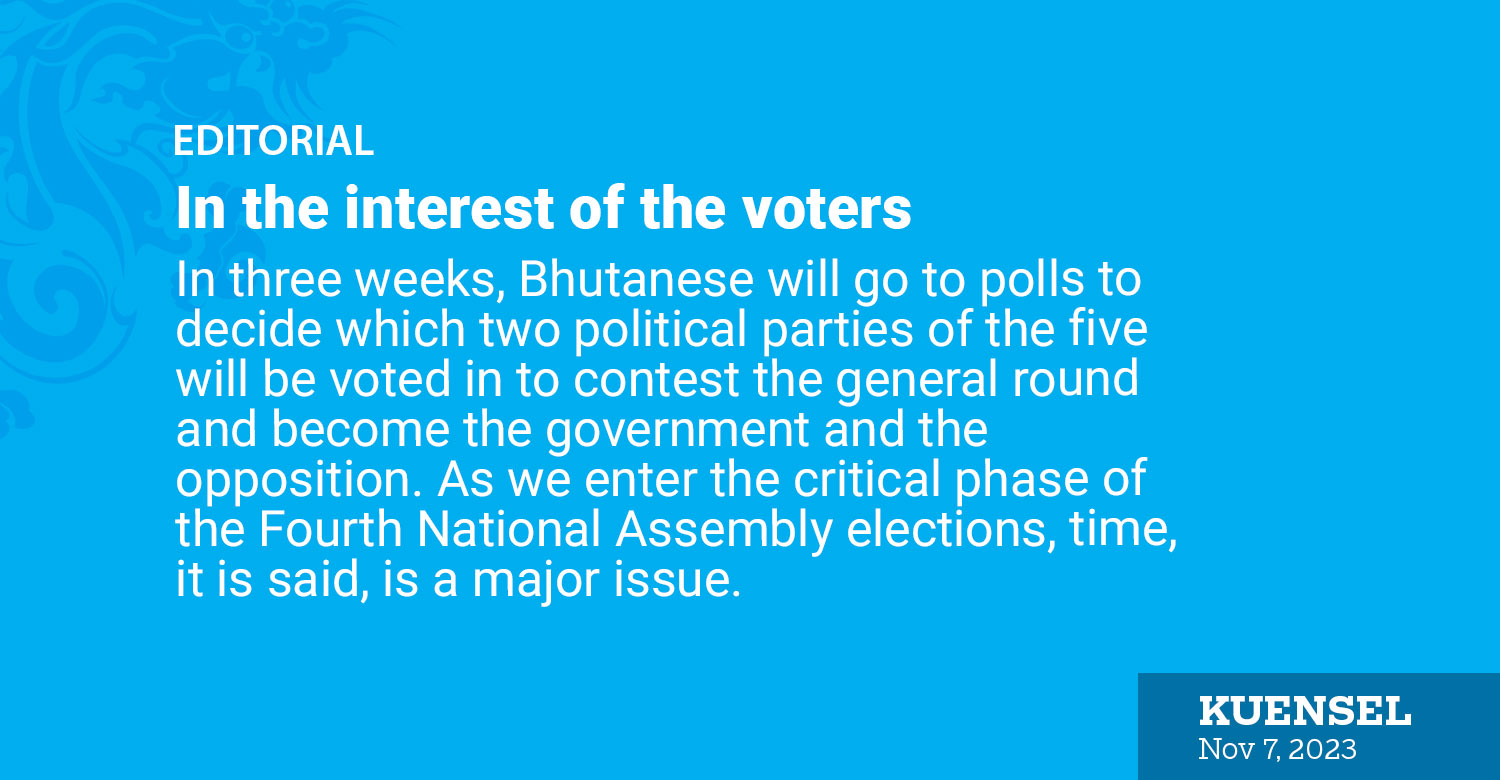In three weeks, Bhutanese will go to polls to decide which two political parties of the five will be voted in to contest the general round and become the government and the opposition. As we enter the critical phase of the Fourth National Assembly elections, time, it is said, is a major issue.
The presidential debate yesterday was evidence. The debate broadcast live and live-streamed on Facebook was watched by thousands of Bhutanese both at home and abroad. The interest in the debate could be seen by people sharing the place where they are watching from – from Australia to the Middle East, India, Canada and the US.
The debate, especially the questions and answers were getting interesting, was punctuated with lighthearted remarks from the moderator who conducted the debate skillfully. The only problem with the presidential debate, many say, was the time. As presidents questioned each other’s pledges, the voters wanted to know more.
However, the time allocated cut short the responses even as presidents were defending or clarifying their stand. The debate is not entertainment. It is an important platform for the presidents to question and clarify their pledges in public as voters listen to them. It is also the only time where party presidents question each other in public.
Unlike in other democracies, our political parties do not have clear-cut ideologies. Parties are elected, mostly on the pledges, despite how the so-called party tshogpas in the gewogs and the dzongkhags influence voters. What they stand for and how they convince voters is instrumental if their party workers are not influencing voters purely on party lines.
Therefore, the presidential debate is important to learn what parties have to offer to the voters. There were important questions that delved into national issues and issues that matter to an average voter. To a large extent, the debate provides an opportunity for undecided voters to make up their minds. With five political parties contesting, it is imperative for voters to know why they vote for a party.
The “du-tshe mendu” (no time) phrase, the most common word used in the debate denied people or voters from knowing more about the political parties. That political parties can elaborate their stand on their pledges during the campaign is different.
As we know from past experiences, voters are passive or mere participants during the campaigns. The public campaign is a sermon if not a lecture. Hardly do voters question what parties tell them whether they understand or not.
The questions, the moderator and party presidents ask, are questions on every voter’s mind even if they do not have the opportunity or the guts to ask. But the “lack of time” in the formatted debate prevented people or voters from getting to know the parties better. Providing enough time for presidents to explain, clarify and defend their pledges will help the average voter to make informed decisions. If the issues debated were way above the understanding of some, the educated ones could explain it to their relatives or friends in the village to let them decide.
The quality of the public debate has improved. There were issues of national importance that would affect lives and livelihood in a remote village. Voters should be aware of what each part stands for to decide who they vote for. At a time when votes are decided by which party has the most party workers, letting voters know what political parties stand for would help people exercise their franchise based on what they understand and not by influence.
There will be many more debates. Perhaps, we could relook into the format of the debates to give voters the opportunity to make up their minds.


